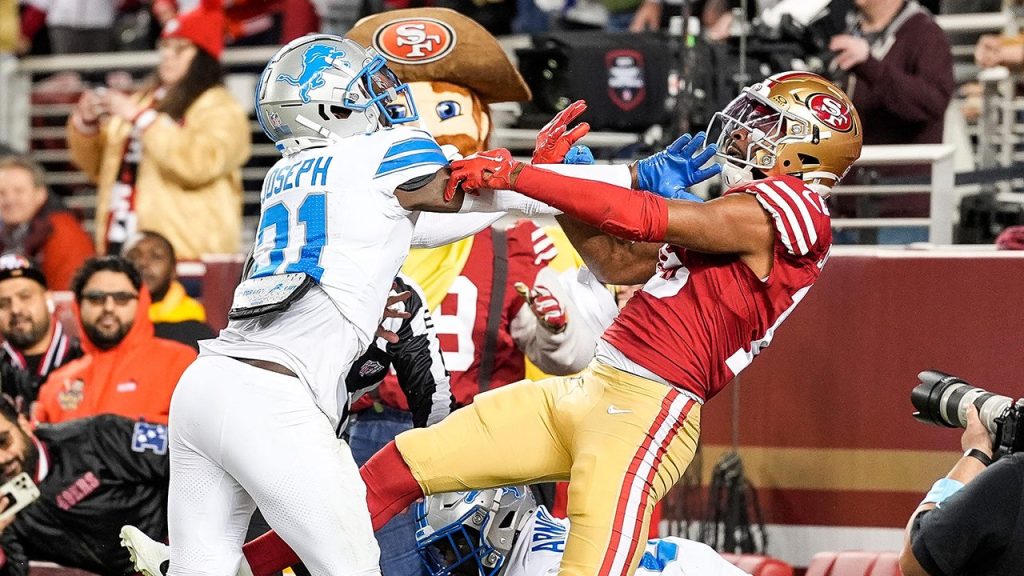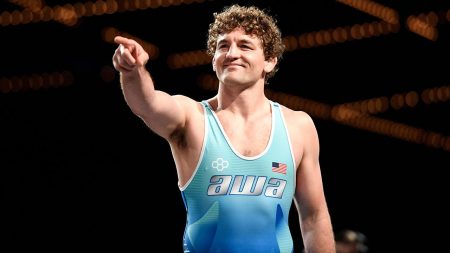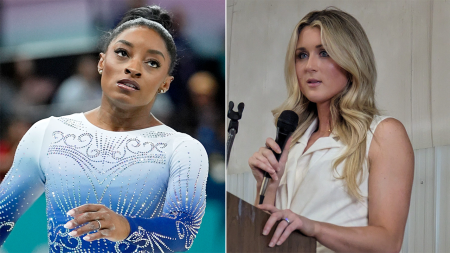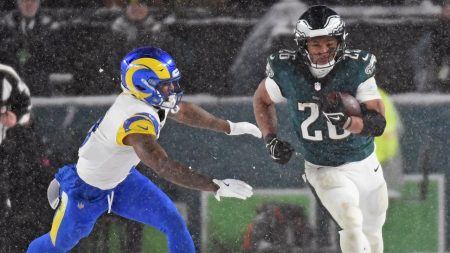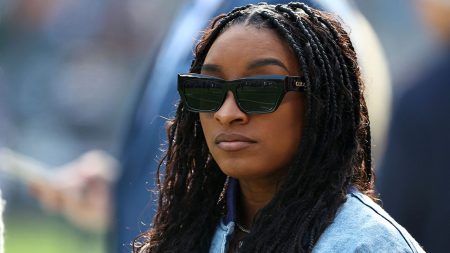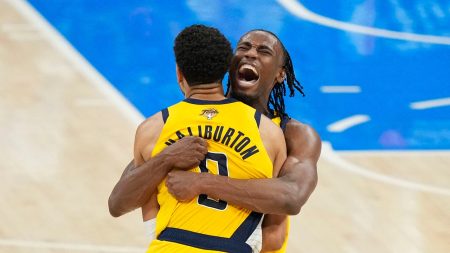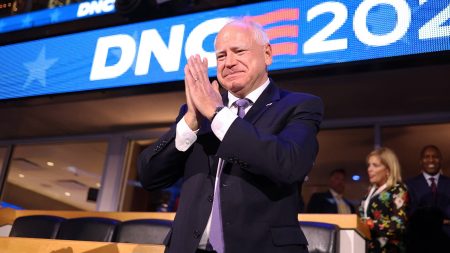The Monday night clash between the Detroit Lions and the San Francisco 49ers was a high-stakes encounter, fueled by contrasting narratives for each team. The Lions, on the cusp of an NFC North title game against the Minnesota Vikings, aimed to solidify their momentum with a victory. Conversely, the 49ers, reeling from a season marred by injuries and setbacks, sought a redeeming performance to salvage pride amidst a playoff-less year. This backdrop of urgency and underlying tensions set the stage for a fiery contest, punctuated by a first-quarter scuffle that underscored the intensity of the game.
The incident, sparked during a San Francisco drive culminating in a Brock Purdy touchdown pass to Ricky Pearsall, epitomized the emotional undercurrents of the match. 49ers wide receiver Jauan Jennings engaged in a physical block against Lions defensive back Terrion Arnold, propelling him into the end zone. This act served as the catalyst for the ensuing altercation, as Lions safety Kerby Joseph intervened, shoving Jennings into the stands. Arnold, retaliating in the heat of the moment, slapped Jennings on the helmet. The officials, responding to the escalating conflict, penalized both Joseph and Jennings for unnecessary roughness, attempting to restore order on the field.
While the penalties served as an immediate on-field consequence, the incident resonated beyond the game itself, particularly with Kerby Joseph. In post-game comments, Joseph, while acknowledging his penalty and expressing remorse, emphatically defended his actions, emphasizing his unwavering commitment to supporting his teammates. He portrayed his intervention as an act of fraternal protection, emphasizing his responsibility to defend his “rook,” or rookie teammate, Terrion Arnold. Joseph’s words conveyed a sense of loyalty and protectiveness, highlighting the strong bonds within the Lions’ locker room and the inherent unwritten code of supporting one another, even amidst heated confrontations.
Despite the early-game friction and the emotional intensity surrounding the scuffle, the Detroit Lions managed to maintain their composure and secure a hard-fought 40-34 victory. Their offensive prowess was on full display, spearheaded by quarterback Jared Goff, who threw for three touchdowns. Jahmyr Gibbs, the Lions’ running back, further bolstered their offensive efforts with an impressive 117-yard performance, capped off by a touchdown of his own. Kerby Joseph, despite his earlier involvement in the altercation, played a pivotal role in the Lions’ defensive efforts, intercepting San Francisco quarterback Brock Purdy twice, significantly impacting the game’s outcome.
The game’s narrative extended beyond the final score, highlighting the complex dynamics of professional football. While the Lions’ victory underscored their on-field capabilities, the first-quarter scuffle revealed the emotional undercurrents and intense loyalties that exist within the sport. The incident, involving Jennings, Arnold, and Joseph, served as a microcosm of the broader pressures and anxieties inherent in a high-stakes game, where playoff implications and the desire for redemption added fuel to the fire.
In conclusion, the Monday night game between the Lions and the 49ers was a multifaceted event, encompassing not only a thrilling display of offensive prowess and defensive resilience but also a raw display of emotions and team camaraderie. The Lions, ultimately victorious, demonstrated their preparedness for the upcoming NFC North title game, while the 49ers, despite their loss, showcased a fighting spirit amidst a challenging season. The first-quarter scuffle, though a brief episode within the larger context of the game, underscored the human element of professional football, reminding us of the intense emotions, loyalties, and pressures that drive the athletes on the field. The incident, and Kerby Joseph’s subsequent comments, offered a glimpse into the complex dynamics within a team, highlighting the importance of camaraderie and the unwavering commitment to supporting one’s teammates.




